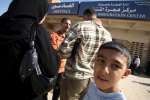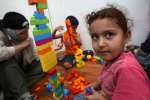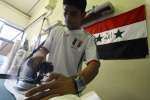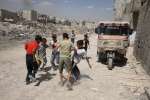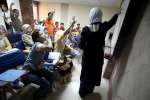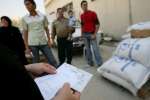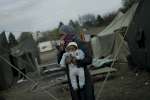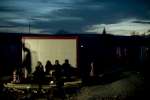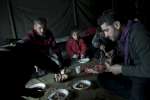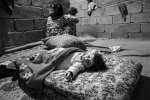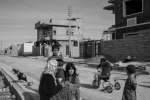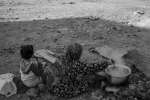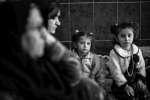- Text size
 |
|  |
|  |
| 
- Français
Caring for the most vulnerable of the vulnerable: orphans in Brazzaville
News Stories, 12 September 2011
BRAZZAVILLE, Republic of Congo, September 12 (UNHCR) – In his traumatic young life, Alphonse has been forced to flee his country, lost his mother and been accused of witchcraft. But while the 12-year-old refugee faces a tough future, he is now surrounded by people who care.
The youngster now lives at the Centre of Insertion and Reinsertion of Vulnerable Children (CIREV), one of at least five UNHCR-supported orphanages in the Republic of Congo capital that take in parentless refugee children – among the most vulnerable of the vulnerable.
Alphonse's parents hailed from Rwanda, but he was born in exile. About 10 years ago, he moved with his mother and stepfather to Impfondo in northern Republic of Congo. When his mother died soon after their arrival, Alphonse was abandoned at the UNHCR office in the riverside town.
He was sent to live with a foster family, but they too rejected him, accusing the boy of sorcery – a common accusation when foster parents start finding it difficult to feed an extra mouth. But it also meant that Alphonse was ostracised, until UNHCR intervened and referred him to CIREV.
Orphanages like the government-run CIREV can't promise a bright future for their charges, including street children, but they provide food, shelter, education, solidarity and protection. And, of course, the children can identify with each other and make friends, Congolese and refugees alike.
"Unfortunately, the psychological assistance is almost non-existent here," CIREV Director Barthelemy Peya said, highlighting the lack of infrastructure and professional resources in the orphanages, where many of the children, especially refugees, need counselling for deep-rooted trauma. "All we can do is to keep them with us, as long as possible," he added.
Most of the orphanages in Brazzaville are run by Christian churches, including the Notre Dame de Nazareth Centre, which is home to 52 children ranging in age from a few months old to 17. They include 12 registered refugees.
"Most of the kids are brought here by social workers, the local parishes and the police," explained Sister Marie Thèrese, who runs the centre. "Our main challenge is not only to feed them properly, but also to build real human beings." The children are educated and are expected to cook and clean.
Eleven-year-old Yvette, also from Rwanda, has been at the Notre Dame centre for the past two years with her two brothers and her sister. She loves maths and French and has a healthy competitive streak; when UNHCR visited she was complaining about coming second in her French class.
The Yamba Ngai Centre, also run by nuns, includes six refugee siblings from Burundi aged four to 13 years old among its 42 children. It should only hold half that number but, as Sister Marie Lourdes explained: "We cannot leave the kids on the streets, it would be even worse for them," she said, adding: "We are in front of the wall and to get past, we often have to break it."
Unaccompanied refugee children, including orphans, are people of major concern to UNHCR and the agency provides mainly food assistance for them in five orphanages in Brazzaville and regularly monitors their well-being as well as the welfare of those living with foster families. In total, UNHCR helps 214 refugee orphans or unaccompanied minors, living in special centres or with foster families around the country,
Esther Benizri, a UNHCR protection officer, said that the agency was effectively helping all children in the centres. "It's difficult to help only the refugee children and to ignore the others," she said, adding that the main aim was to maintain good standards. "We conduct evaluations, to establish the best interest of every child and to help find durable solutions for their future." That essentially means either voluntary repatriation or local integration.
By Daniela Livia Bîciu in Brazzaville, Republic of Congo



